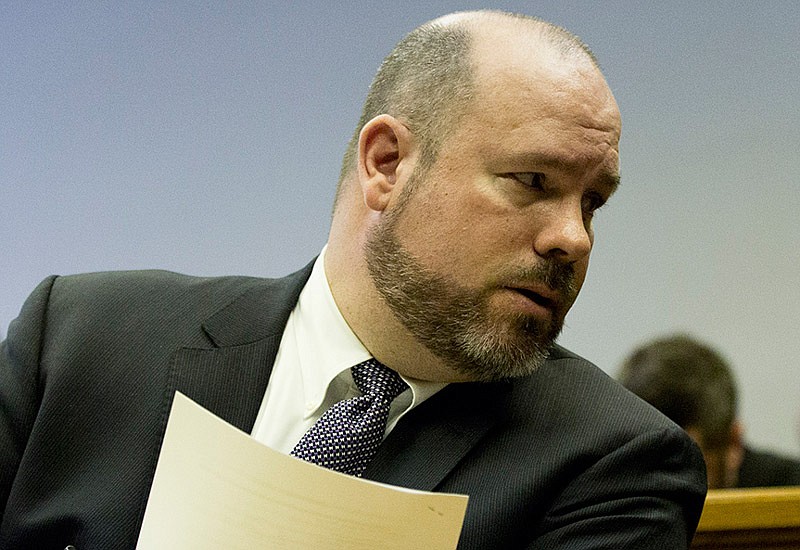R.G. should be a free man, with no criminal record.
A three-judge panel of the state appeals court in Kansas City ruled Tuesday that Cole County Presiding Circuit Judge Pat Joyce decided correctly that R.G.'s two peace disturbance convictions should be expunged.
Jefferson City lawyer Shane Farrow is R.G.'s attorney.
"We believe that the Western District's decision in this case was well-reasoned and correct," he told the News Tribune on Tuesday afternoon.
Convicted in October 2010 and October 2012, of the separate Cole County peace disturbance charges, R.G. asked the circuit court a year ago to erase those misdemeanor convictions. Joyce agreed last October.
Part of Missouri's open records, or Sunshine, law allows some conviction records to be expunged - that is, erased from the public record - if "at the time the petition is filed, it has been at least seven years if the offense (to be expunged) is a felony, or at least three years if the offense is a misdemeanor, municipal offense, or infraction, from the date the petitioner completed any authorized disposition (and) the person has not been found guilty of any other misdemeanor or felony, not including violations of the traffic regulations during the time period specified for the underlying offense, violation, or infraction "
But the Missouri Highway Patrol didn't agree with Joyce's finding that R.G. qualified for expungement and asked the appeals court to overturn her ruling.
In Tuesday's seven-page ruling, Judge Gary D. Witt wrote for the court: "The circuit court properly interpreted and applied the statutory provisions in question."
The attorney general's office represented the patrol in the lawsuit and the appeal but declined to comment for this story.
The court noted Joyce had determined R.G. was fined $500 in the first, 2010 case, "which was paid that day."
The circuit court issued a suspended imposition of sentence in the 2012 case and placed R.G. "on two years of probation which he successfully completed," the appeals court found.
And, Witt noted, "The circuit court found that following the sentencing on October 22, 2012, R.G. has had no other findings of guilt on any misdemeanor or felony charges and had no criminal charges pending at the time of the hearing in this case. The circuit court found it had been more than three years since R.G. had completed his sentence for the 2010 conviction and his probation for his 2012 conviction. The circuit court found the expungement of R.G.'s arrest and conviction in both cases is consistent with the public welfare and is warranted by the interests of justice."
In its ruling, the appeals court explained: "The purpose of expungement is to provide a second chance to persons who have had prior criminal offenses but have shown by their more recent conduct that they have rehabilitated themselves and deserve the second chance provided for in the statute."
Witt added: "If the petitioner can establish that their 'habits and conduct demonstrate that the petitioner is not a threat to the public safety of the state,' and that '[t]he expungement is consistent with the public welfare and the interests of justice warrant the expungement,'" as was done in R.G.'s case, then Joyce didn't make a mistake in approving his request to expunge the previous criminal records.
The court also explained why it was using initials rather than R.G.'s full name.
"It would defeat the spirit of the expungement statute to refer to a party by name, in a public opinion which includes details of the offenses contained within the record, such that any order of expungement would be defeated by the public record made in the published opinion from the appeal," Witt wrote in a footnote on the seven-page opinion's first page.
"To do otherwise would encourage a party which opposed the expungement to appeal the decision in order to create a readily available public record of the now expunged offenses, and would discourage a party seeking expungement from appealing the denial of that request due to the readily available public record created by the appeal."

